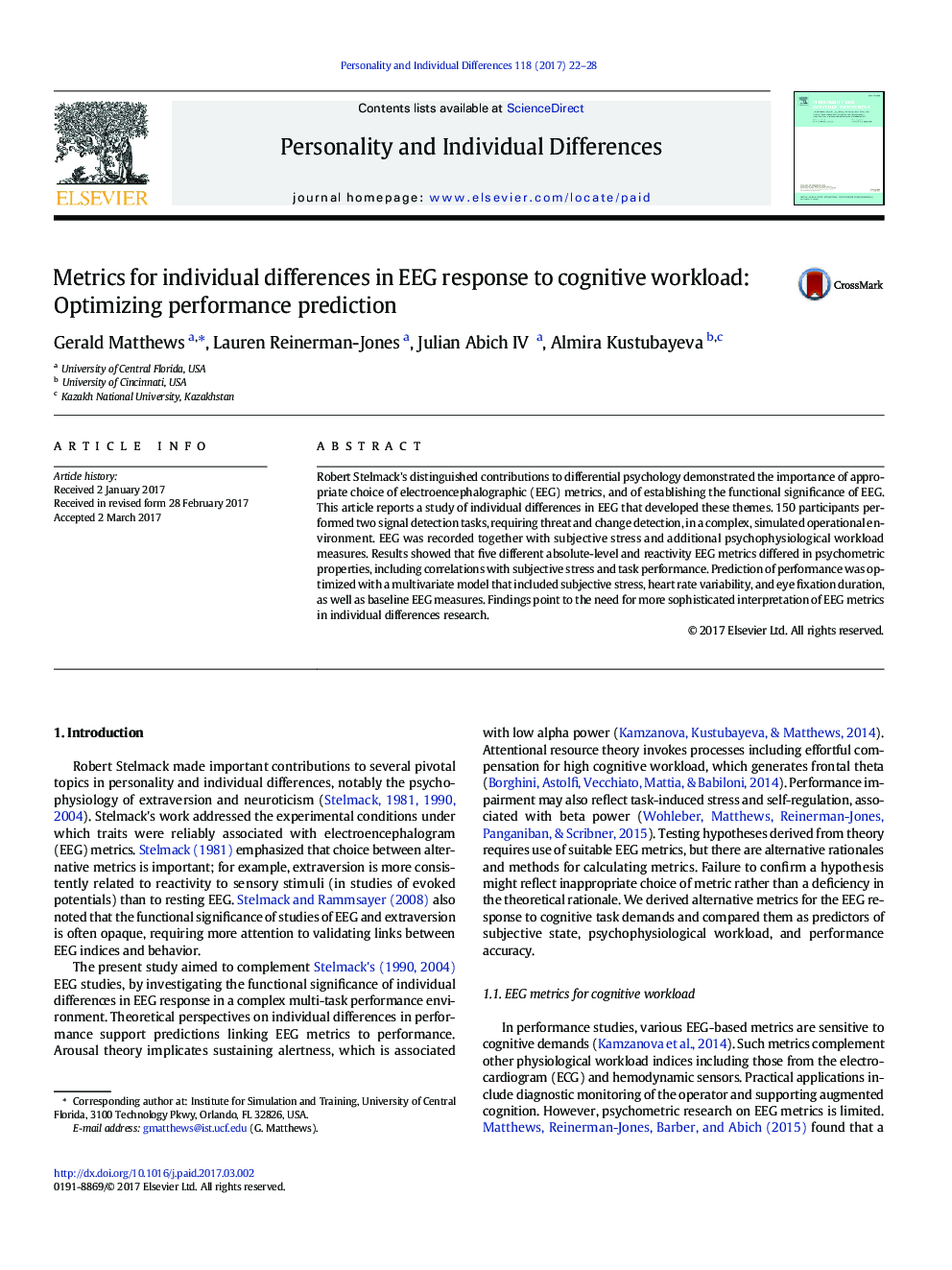| Article ID | Journal | Published Year | Pages | File Type |
|---|---|---|---|---|
| 5035564 | Personality and Individual Differences | 2017 | 7 Pages |
Abstract
Robert Stelmack's distinguished contributions to differential psychology demonstrated the importance of appropriate choice of electroencephalographic (EEG) metrics, and of establishing the functional significance of EEG. This article reports a study of individual differences in EEG that developed these themes. 150 participants performed two signal detection tasks, requiring threat and change detection, in a complex, simulated operational environment. EEG was recorded together with subjective stress and additional psychophysiological workload measures. Results showed that five different absolute-level and reactivity EEG metrics differed in psychometric properties, including correlations with subjective stress and task performance. Prediction of performance was optimized with a multivariate model that included subjective stress, heart rate variability, and eye fixation duration, as well as baseline EEG measures. Findings point to the need for more sophisticated interpretation of EEG metrics in individual differences research.
Related Topics
Life Sciences
Neuroscience
Behavioral Neuroscience
Authors
Gerald Matthews, Lauren Reinerman-Jones, Julian IV, Almira Kustubayeva,
